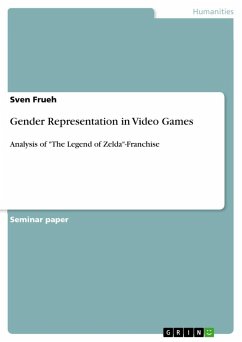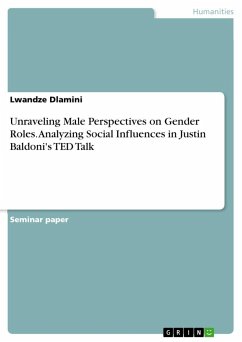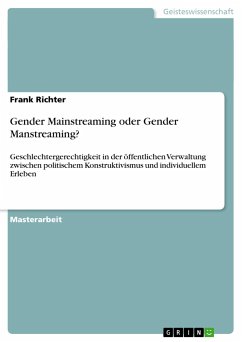Seminar paper from the year 2021 in the subject Gender Studies, grade: 1, Private Pädagogische Hochschule der Diözese Linz (PHDL), language: English, abstract: This paper aims to examine in how far the portrayal of stereotypical gender roles in video games has changed. For this purpose, one of the oldest and most popular video game franchises "The Legend of Zelda" is analysed using a theoretical framework of both game studies and gender studies. The paper aims to give a game overview of three key aspects - story, picture, and characters - focusing on the portrayal of gender norms, and stereotypes. Over the past fifty years, video games have taken over a substantial part of the media entertainment industry, with approximately 5,3 million Austrians playing; 90 % of the most active age group, the ten-to-fifteen-year olds, are playing more than once a month. However, the average Austrian gamer is 54 % male and 46 % female, 35 years old, and spends an average of 11,5 hours per week playing. Video games, as well as any other form of mass entertainment media, can influence players' perceptions and expectations around gender identity and gender roles. The stereotypical portrayal of masculinity and femininity, which was a common occurrence in the early history of video games, is especially problematic in reaffirming gender stereotypes. This materialised in a pattern of white, male, heterosexual player characters being sent on a heroic journey, while female characters were often oversexualised while playing a passive role as a love interest for the main character. In this regard, video game heroes and characters, as well as their narrative, were not different from popular cultural movies, comics, and books of the late 20th century.
Hinweis: Dieser Artikel kann nur an eine deutsche Lieferadresse ausgeliefert werden.
Hinweis: Dieser Artikel kann nur an eine deutsche Lieferadresse ausgeliefert werden.








